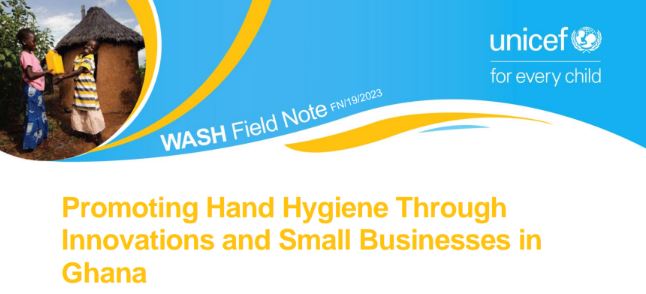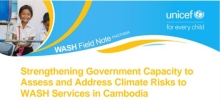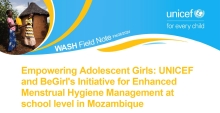Field Note: Promoting Hand Hygiene Through Innovations and Small Businesses in Ghana

Less than 50% of Ghanaians practice safe hand hygiene in Ghana (MICS 2017/18). As a result, the potential impact of disease outbreaks like cholera puts the lives of the populations at risk. As a component of its Sanitation Marketing (SanMark) programme, UNICEF Ghana, in recent years, - has been partnering with various state agencies and civil society organisations to identify and support private innovators and small businesses engaged in the production and supply of hand hygiene related facilities and materials.
The support includes (i) establishment of local supply chains for hand hygiene products and (ii) promotion of innovation in partnership with private sector entities. Through the interventions, it has been learnt that a number of Ghanaian youths are innovative and are capable of seizing opportunities in disasters and other emergency situations to innovate solutions. It has also been learnt that even though several hand hygiene-related small businesses exist, they lack the capacity to expand. UNICEF will continue to partner with state agencies and CSOs to support and promote innovation and small businesses in hand hygiene.




